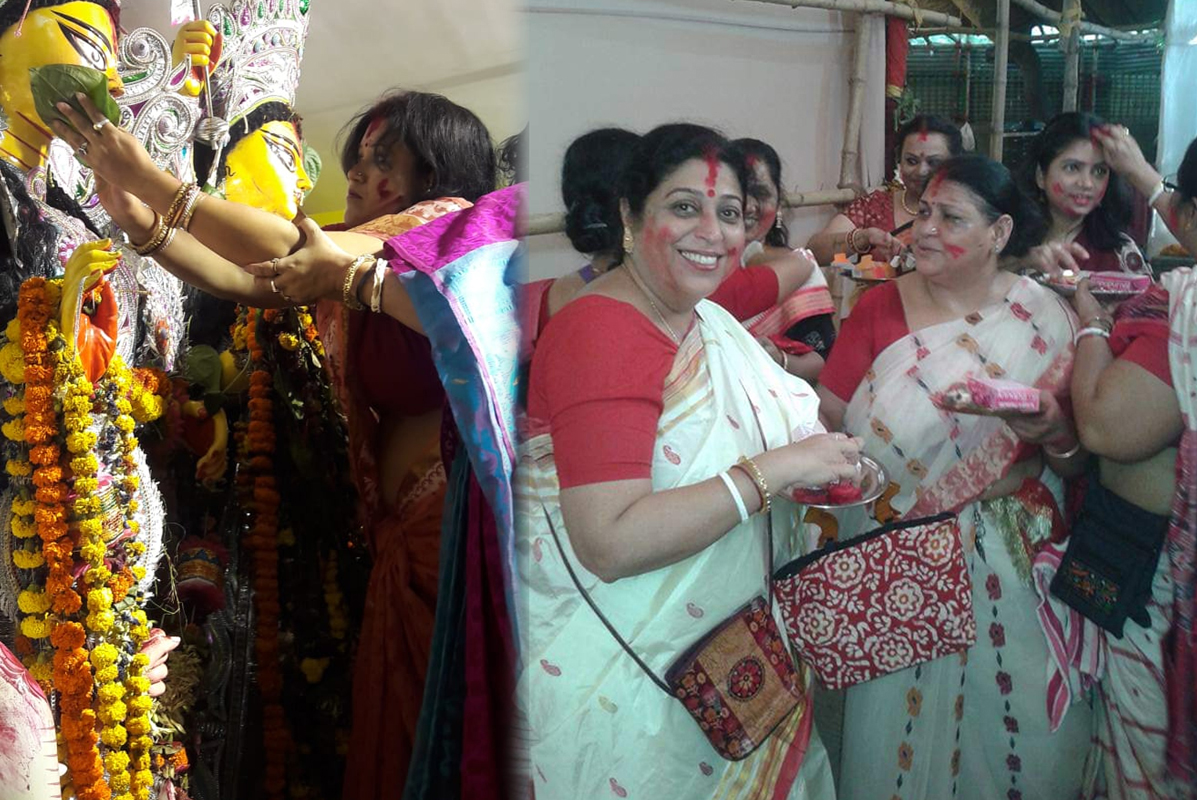Bijoya Dashami marks the day when one bids adieu to Goddess Durga at the end of a five-day stay on Earth. Legend has it that Dashami is the day when she sets out for Kailash, her husband’s abode, accompanied by her children. With a heavy heart, Bengali Hindus immerse the clay idol of the goddess.
But the most interesting part of the six-day function is enacted just before the immersion, known as Debi Boron and Sindur Khela rituals. Debi Boron is a long process, in which ladies offer sweets, sindur and other items to the idol. It is a purely ladies’ function and that too only married ladies. Widows and unmarried women are generally forbidden. The women, who take part in the Sindur Khela, apply vermillion on the idol’s face and feet with betel leaf, offer sweets and smear each other with sindur.
Before the idols are taken away for immersion, they collect a small amount of vermillion from the Devi, as it is believed it will bestow good health to their husbands when used by them. What is left on the fingers is applied to each other’s forehead, faces, chin and cheeks and also on the noya or the iron bangle worn by every married Bengali woman. The origin of this ritual is unknown but it is said to have started about 200 years ago.
The significance is that the ladies, who indulge in this Khela, pray to Maa Durga for the longevity of their spouses. Usually, unmarried women and widows are barred from participating in the ritual, but in recent years some progressive thought has brought changes in the custom. Does Maa Durga really separate her married and unmarried daughters? Does she really think one is more special than the other?
As Maa Durga belongs to everyone, this ritual now includes all women ~ be it married, widowed or transgender, to show that this is a universal bonding for all women and not restricted only to married women. This ritual is now also gaining popularity among other communities.











